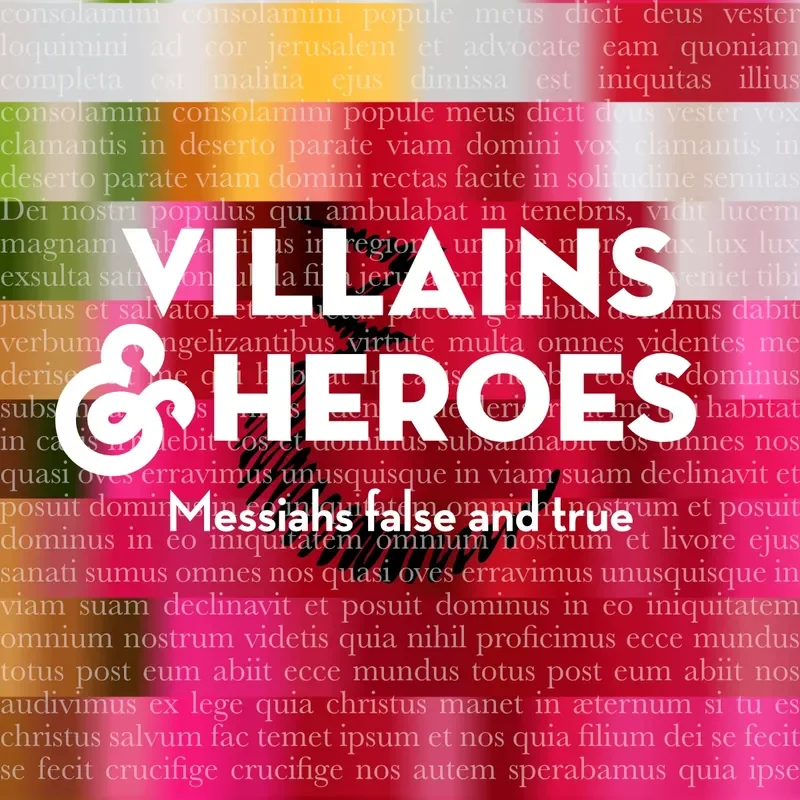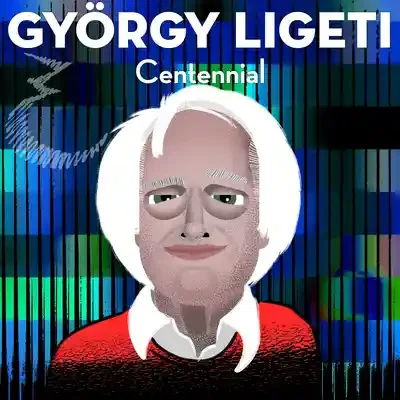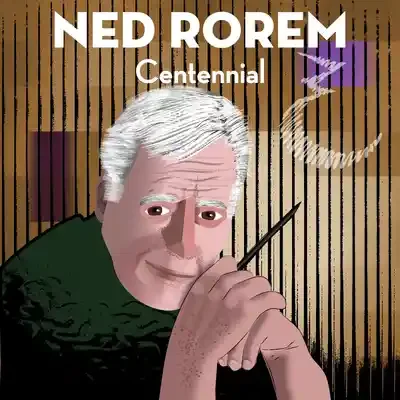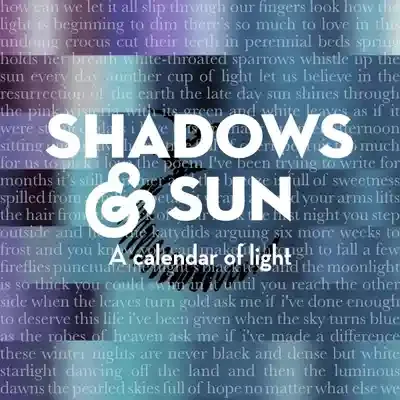Season 30 | 2023
Concert art by David Gellman
VILLAINS & HEROES: Messiahs false and true
Saturday | 25 March 2023 | 8pm
Plymouth United Church of Christ
1217 6th Avenue | Seattle
Sunday | 26 March 2023 | 3pm
St John’s Episcopal Church
114 20th Avenue Southeast | Olympia
In the very first concert of its 30th season, The Esoterics will perform two brand-new choral compositions by the Los Angeles-based composer, Rex Isenberg.
For his first piece, If we have wisdom, Isenberg sets the text of a letter written by George Washington to the Hebrew Congregation in Newport, Rhode Island, in 1790. After a flourishing Jewish community in the American colonies fled during British occupation, any left during the British occupation, the Jewish community in Newport had only begun to recover its former prominence at the time of George Washington's visit in August 1790 . This letter holds much significance for many American Jews as a testament to their rights to religious freedom and self-determination – right from the founding of this country. This letter is framed in the home of Rex’s husband’s parents, and his family reads it annually on Passover. The Esoterics is honored to be singing this text for the first time in the world premiere of this composition!
In the second, more extensive work of our performance, Messiahs false and true, Isenberg explores the perennial predicament of the “messianic leader” in human history. This work is composed for choir with accompaniment of organ and percussion, as well as a spoken oratorio. During periods of crisis or cultural upheaval, societies tend to gravitate toward those individuals who promise salvation and elevate them to power. We may be seeking hope, guidance, salvation, or a sense of purpose in our lives. Messianic figures have played an important role in shaping human history, and their influence continues to be felt today. Some of these figures become our greatest heroes, others, our most hateful villains.
Rex’s Messiahs examines this phenomenon through a tour of messianic figures - heroic and horrific - and the narrative of the piece follows society’s common response to such figures: anticipation, jubilation, disappointment, condemnation, and grief. The spoken narration of this piece consists of a collage of texts from various messianic leaders, as well as their admirers and critics. This narration is paired with biblical passages from Handel’s Messiah that is sung by the choir, which responds to the narration. At the end of this journey, the final words of the piece ask us to rely less on imperfect saviors, and to have faith in the strength of our collective will to forge a better tomorrow.
Born in Philadelphia, Rex holds a BA in Music from Yale University and Masters and Doctorate degrees in composition from the Manhattan School of Music. Isenberg’s artistic works often explore the complexities of human relationships across different times and societal settings. He is also devoted to expanding and enriching the catalog of Jewish liturgical music by creating compositions that remain faithful to the original text but also resonate and renew meaning with modern audiences
To perform Messiahs, The Esoterics will be joined by organist Wyatt Smith, percussionist James Doyle, and our narrator, the Reverend Kelle Brown, senior pastor at Plymouth Church in downtown Seattle. The Esoterics is excited to welcome Rex to the Pacific Northwest for these performances of his works. We hope you can join us for this fantastic concert!
CONCERT REPERTOIRE:
If we have wisdom (2021, world premiere)
Messiahs false and true (2019, regional premiere)
by Rex Isenberg
Portrait of Ligeti by David Gellman
LIGETI: György Ligeti centennial
Saturday | 20 May 2023 | 8pm
Plymouth United Church of Christ
1217 6th Avenue | Seattle
Sunday | 21 May 2023 | 8pm
Christ Episcopal Church
310 North K Street | Tacoma
Born to Hungarian Jewish parents on 28 May 1923 in Transylvania (then in Romania, now in Hungary), György Ligeti was to become one of the most innovative and influential figures of the avant-garde and contemporary concert music in the latter twentieth century.
Ligeti received his first musical training at the conservatories in Cluj and Budapest, but his education was interrupted by World War II. György was sent to a forced labor camp, his younger brother Gábor as well as his parents were sent to concentration camps. His mother was the only member of his immediate family to survive. After the war, Ligeti returned to his studies at the Franz Liszt Academy of Music, where he studied with Kodály, Bárdos, Farkas, and Veress, and conducted ethnomusicological research of Hungarian folk music. After completing his studies, Ligeti became a professor of harmony, counterpoint, and music analysis at the Liszt Academy from 1950 to 1956. During this time, the communist regime in Hungary restricted all communication outside the Eastern Bloc. Being cut off from the artistic developments in the West further frustrated the young composer.
In later 1956, after the Hungarian uprising was suppressed by the Soviet army, Ligeti fled to Vienna. He left behind many manuscripts of his early works, most of which are now lost. Ligeti consoled himself by claiming that he wasn’t interested in this early work, and only cared about his non-tonal music. After arriving in Vienna, Ligeti then moved to Cologne, where he attended the Darmstadt Institute, and studied with Stockhausen. After three years of being inspired by electronic music, he left it behind, preferring instead to create its textures with acoustic instruments and singers. Ligeti then taught in Stockholm between 1961 and 1971, at Stanford University in 1972, and settled into a post as professor of composition in Hamburg between 1973 and 1989.
In addition to his fascination with micro-polyphony, micro-rhythm, and arhythmic canon, Ligeti was particularly interested in African percussion music, the literature of Lewis Carroll, Franz Kafka, Jorge Luis Borges, and Douglas Hofstadter, as well as the fractal geometry of Benoit Mandelbrot. Ligeti died on 12 June 2006, and is buried in the Vienna. His musical legacy is carried on by his son Lukas, a composer and percussionist based in South Africa.
Best known in cinematic circles as the composer of Lux aeterna from Stanley Kubrick's film, 2001: A space odyssey, György Ligeti also wrote music that is featured in 2010, The shining, Eyes wide shut, Shutter Island, Heat, the 2014 remake of Godzilla, The killing of a sacred deer, and the radio series based on The hitchhiker’s guide to the galaxy. His early choral music (from 1946 to 1956) is mostly modal or tonal, inspired by Hungarian folk texts, and is replete with polyphonic patter and verse forms. Beginning in 1966 with his Lux aeterna, one is able to witness a second stage in Ligeti’s creative life – in which he employs arhythmic canons and modernist tone clusters to create fragmentary fantasies, extraordinary etudes, and a set of post-modern “nonsense songs.”
In this concert, The Esoterics will perform ALL of Ligeti’s music for a cappella mixed chorus – from his earliest work in 1946 to his last in 1993.
CONCERT REPERTOIRE:
Bujdosó (The fugitive) (1946)
Drei phantasien (Three fantasies) (1982)
Éjszaka (Night) (1955)
Haj, ifjuság! (Ah, youth!) (1951)
Hortobágy (Songs from Hortobágy) (1951)
Inaktelki nóták (Songs from Inaktelke) (1953)
Kállai kettős (A double-dance from Kálló) (1952)
Két kánon (Two canons) (1947 & 1952)
Lakodalmas (A wedding dance) (1950)
Lux aeterna (Eternal light) (1966)
Magány (Solitude) (1946)
Magos kősziklának (On the highest cliffs) (1946)
Magyar etüdök (Hungarian etudes) (1983)
Nonsense madrigals (1988–93)
Pápainé (Widow Pápai) (1953)
Reggel (Morning) (1955)
all works by György Ligeti
Portrait of Rorem by David Gellman
ROREM: Ned Rorem centennial
Saturday | 21 October 2023 | 8pm
Plymouth United Church of Christ
1217 6th Avenue | Seattle
Sunday | 22 October 2023 | 3pm
St John's Episcopal Church
114 20th Avenue SE | Olympia
In the modern era, if there were a single American composer who represented the triumph of intuitive lyricism over systemic dogma, it would be Ned Rorem. Rorem, who died last November at age 99, never aligned himself with any particular composition school, and preferred to write music that he "wanted to hear." His published work includes over 500 art songs, candid diaries detailing his life and relationships in Paris and New York, and of course: choral music.
Born in Richmond, Indiana, Rorem developed a strong interest in French music - especially that of Debussy and Ravel. He attended the American Conservatory, Northwestern, the Curtis Institute, Juilliard, and Tanglewood, where he studied with Sowerby, Menotti, and Wagenaar, and developed lifelong friendships with Aaron Copland, Leonard Bernstein, and Virgil Thomson.
With money from the Gershwin Prize, Rorem left the US in early 1949, and was hugely productive in Morocco, where he produced a variety of compositions in rapid succession. He later explained: "The best influence for a composer is four walls. The light must come from inside. When it comes from outside, the result is postcard music." After two years in Morocco, Rorem moved to France on a Fulbright Fellowship to study with Arthur Honegger, where he frequented meetings of the neoclassicist group, Les Six, and befriended Francis Poulenc and Darius Milhaud.
Upon his return to the US, Rorem received commissions from the Philadelphia Orchestra, the New York Philharmonic, the Cincinnati Orchestra, New York City Opera, the Elizabeth Sprague Coolidge, Ford, and Koussevitzky Foundations. His Air music: Ten etudes for orchestra won a Pulitzer Prize in 1976. Rorem taught briefly at both the University of Buffalo and the University of Utah before accepting a teaching post at his alma mater, Curtis, in 1980. His String symphony won a Grammy in 1989, and he served as President of the American Academy of Arts and Letters from 2000 to 2003. Rorem split his time between New York and Nantucket with his lifelong partner James Holmes, and his last years were spent in the care of his niece, playing piano, doing crossword puzzles, and walking through Central Park. Rorem died at home in Manhattan on 18 November 2022, at age 99.
The Esoterics marked the weekend of Rorem's 100th birthday by performing all of his secular pieces for a cappella mixed chorus … along with a couple others!
CONCERT REPERTOIRE:
all works by Ned Rorem
Festive alleluias (1992)
Five Armenian love songs (1987)
Four madrigals (1948)
From an unknown past (1951)
I feel death... (1953)
In time of pestilence (1973)
Ode to man (2005)
Pilgrim strangers (1984)
Three poems of Baudelaire (1986)
Virelai (1961)
Concert art by David Gellman
SHADOWS & SUN: A calendar of light
Saturday | 9 December 2023 | 7:30pm
Plymouth United Church of Christ
1217 6th Avenue | Seattle
Sunday | 10 December 2023 | 7:30pm
Christ Episcopal Church
310 North K Street | Tacoma
In December, The Esoterics will mark its 30th anniversary with a weekend of concerts featuring the world premiere commission -- A calendar of light -- by Los Angeles composer Dale Trumbore. Dale has enjoyed a fantastic career since winning The Esoterics' POLYPHONOS composition competition in 2014, and the group is excited to share her most recent work with you. To create this "calendar," Trumbore collaborated with the Pennsylvanian poet, Barbara Crooker. Trumbore's cantata of 24 movements that takes the shape of a cyclical calendar year, and is modular -- featuring multiple starting points that allow the piece to begin or end in the same month as the piece is performed.
In A calendar of light, our relationship to change is mirrored in our relationship to the changing seasons. These range from small and personal changes -- our own daily triumphs and artistic failures - to the wide-ranging, devastating consequences of climate change. Crooker's stanzas ask resonant questions: "Is it impossible to plant change?" "How can we let it all slip through our fingers?" In the end, Trumbore and Crooker's calendar holds us accountable for embracing change and for altering our relationship with the earth for the better. Their piece calls for reflection and action, with recurring refrains and call-and-response movements that invite the audience to sing with the ensemble.
Not only are The Esoterics hosting Dale and Barbara for the weekend of their world premiere, we are also hosting a grand gala reception after each concert -- in Seattle and Tacoma. We hope that you all can join us as we celebrate our pearl anniversary!
CONCERT REPERTOIRE:
A calendar of light (2023, world premiere commission)
by Dale Trumbore



